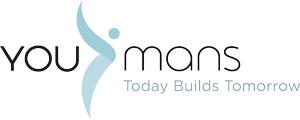
Getting to know each other by playing: DISC workshop
July 1, 2020Learning Podcast
February 16, 2022Who among you has got your 2020 forecast right? How many would have supposed our office would be a forgotten room, a corner of the living room or, the kitchen’s table?
No one, but we did. Companies have become remote employer, offices are closed, streets are deserted, the connections are overloaded.
Now, however, you can hear the first creaks. You get to the second lockdown and you understand that exceptionalism turns into a rule, the new normal. Mumblings. “Lack of control,” says the manager. “You don’t see my efforts“, the performer replies. “I miss human connections“, the team player complains.
That’s happening because we’re not doing remote working, we are cloning the office work, moving it into the kitchen. And it doesn’t work. Meetings? Same planning. The duration? Same, without even the time to breathe between one and the other. The documents circulating? The same.
This phenomenon is called skeuomorphism, which is the tendency to imitate a real object in its virtual form. In a video game, it works, but no one thinks they’re fighting aliens or playing a Champions League game. But we’re thinking about working remotely like we’re on site.
Let’s think about the information we need when we work. In the office, it is not true that information is all digitally available via our computer. We can obtain them in different ways and format, as paper for instance.
When during a meeting in the office you get a new project or task but, at the very end, you realize that some key information is missing, there are ways to fill in the gaps. But when it happens at the very end of a video call and everyone disconnects, it gets complicated. The time you need to fill in what you don’t know or have been miscommunicated can be huge… So much time wasted.
“You tell me that, thanks to remote working, I can stay more with my family“, someone will say, “but then I work after dinner and the weekend… so, please, then give me back my old desk“.
Where can we start? We need to rethink the company as an entity that wants to work remotely and not that has to work remotely. While it is true that those who work remotely are more productive than those who work on-site, this is the case if working conditions improve. Not the other way around.
Let’s talk about information technology, then. We need to align the way we collect information with the technology we have at our disposal. It means processes and skills, organization, and people. At a distance, an unprepared meeting, without a clear agenda and objective, without conclusions, or with too many people who do not contribute, is simply one meeting too many.
Renounce the useless, stay agile, coincidentally a mindset born around the development of software that however not everyone has correctly interpreted in the transition to remote work.
If you want to improve things in your team, don’t think about yet another action plan, think about making a stop doing list. It is not the time to add new stuff but to critically think about the usual stuff. And abandon what to not contribute. Employees will understand that leadership cares about the essential and quality of life.
Giorgio Armani said once, about elegance, Less is more.
That’s right. The essentials must be back in fashion.


